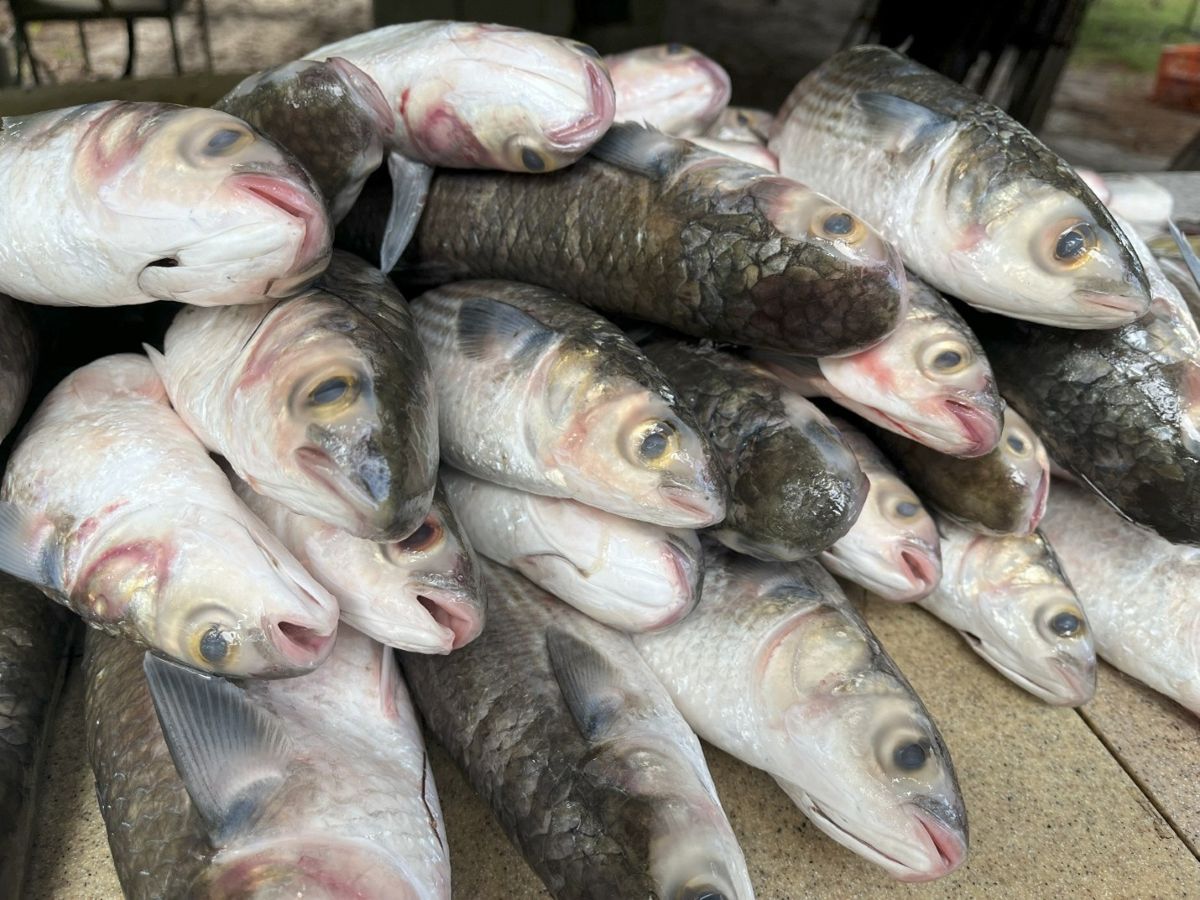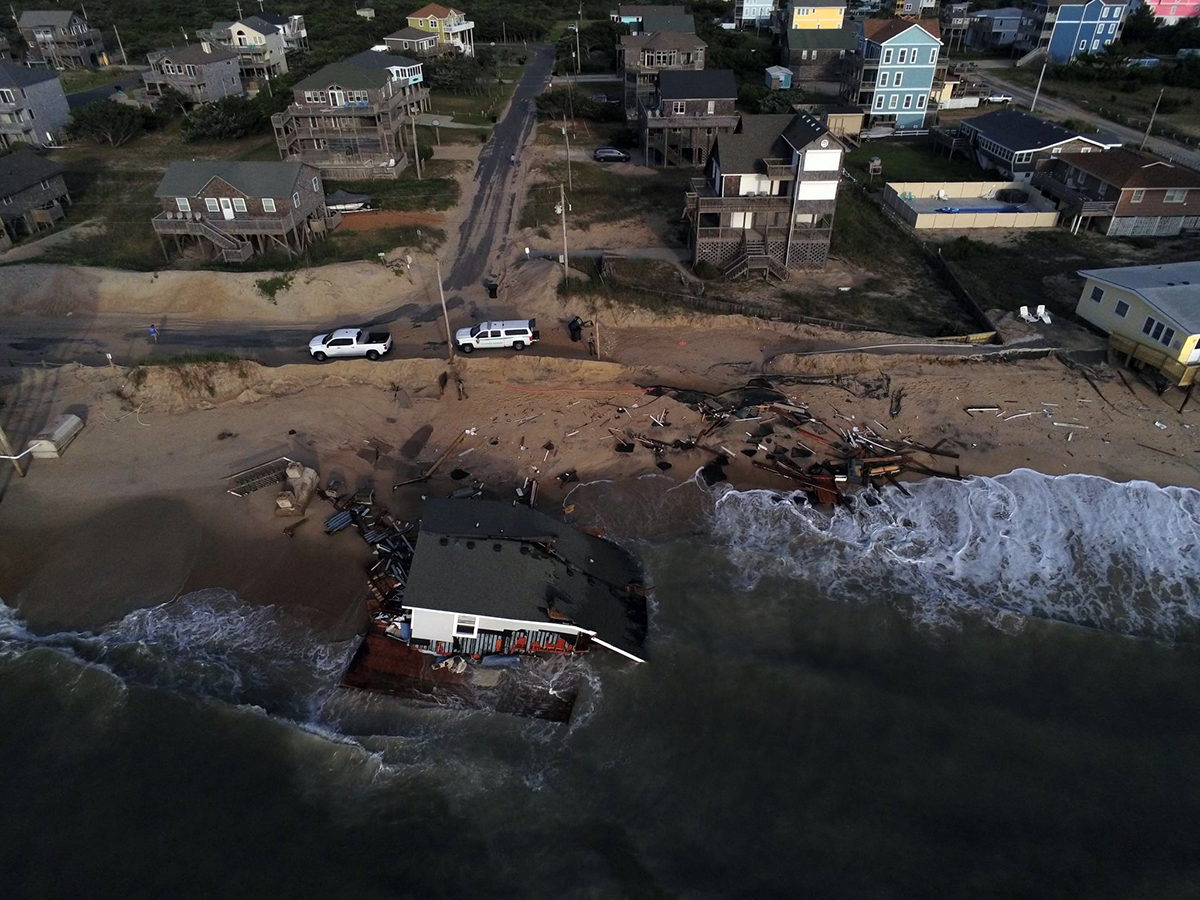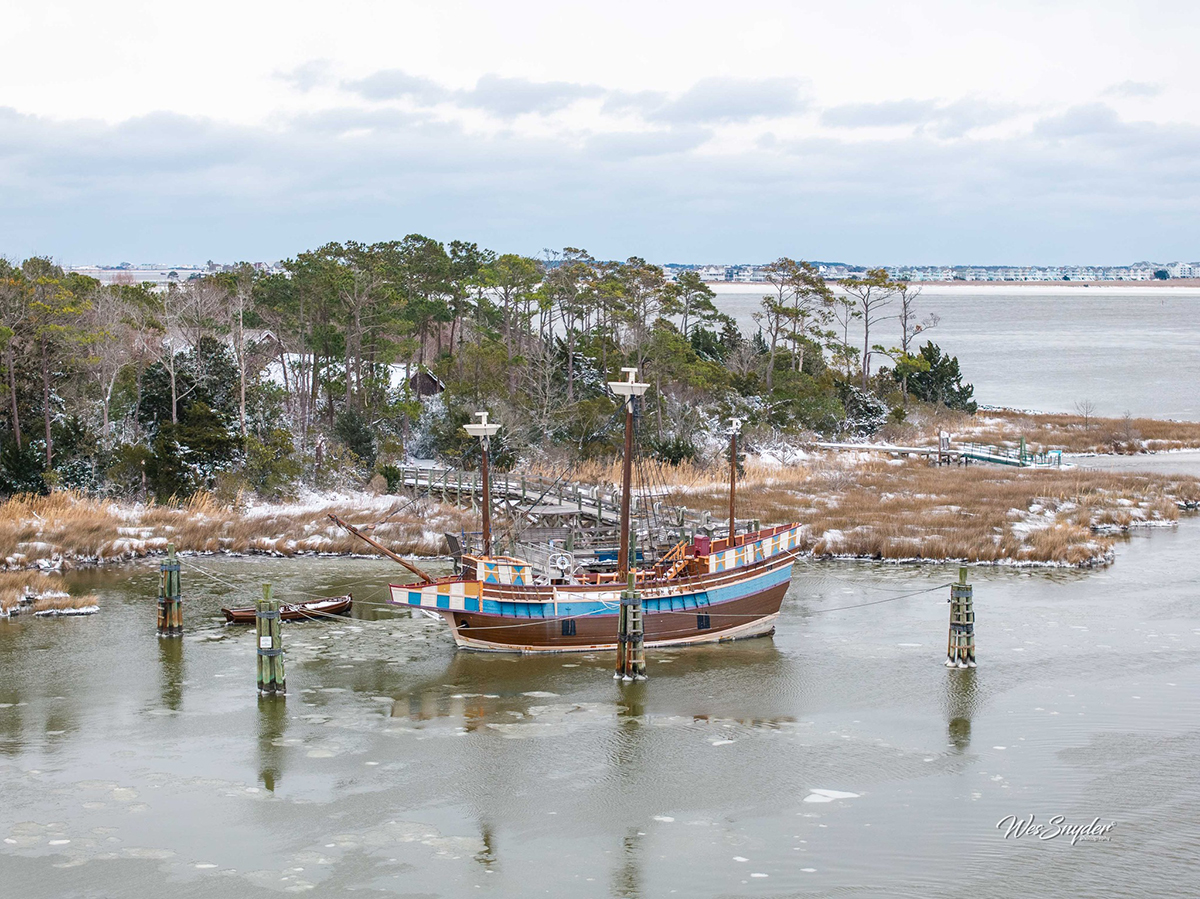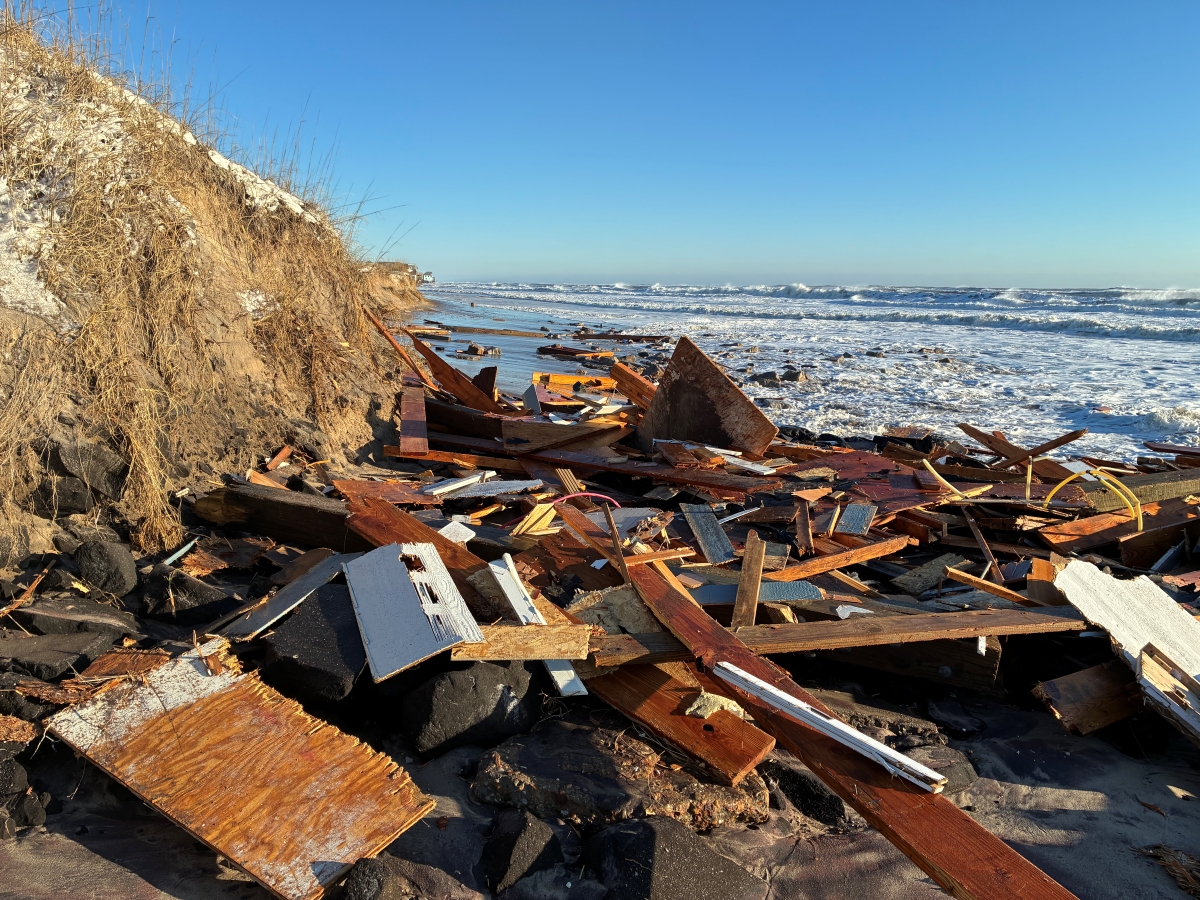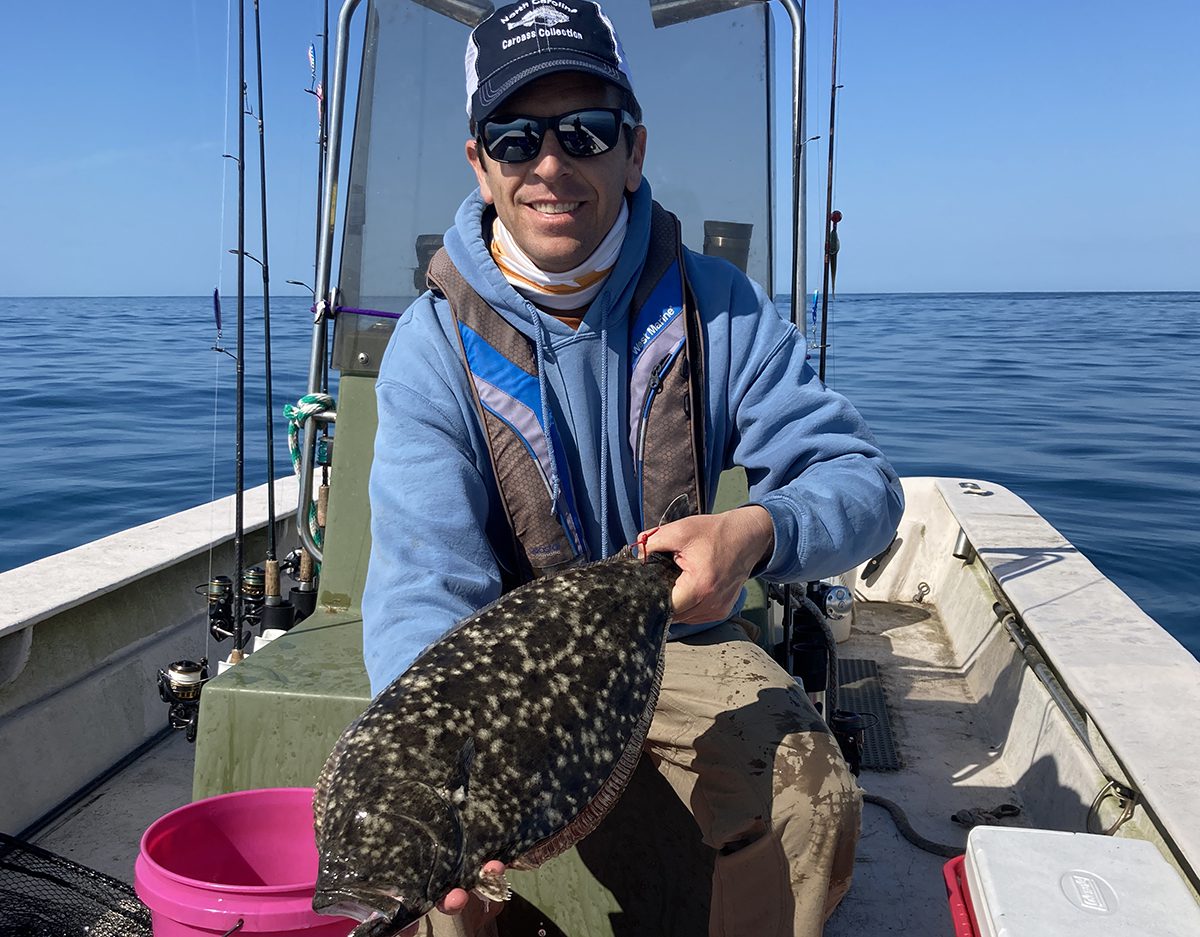
If you’ve ever wondered about who the people are who make the fishing regulations, what they are like, and if they actually like fishing, then you should know that Chris Batsavage has been working his way up the North Carolina Division of Marine Fisheries’ ladder for 25 years.
And he loves fishing.
Supporter Spotlight
“I started working for NCDMF in 1998 as a field technician in the Wanchese Field Office. I was also a fisheries biologist there and later in Morehead City where I moved in 2005,” Batsavage recently explained to Coastal Review.
Many who know him probably remember his work as the lead on the division’s flounder team, but that may not reflect the depth of his work and the breadth of his expertise.
“I served as the lead biologist for southern flounder and represented NCDMF on multistate technical committees for summer flounder, scup, black sea bass, and spiny dogfish,” he said.
He is currently the special assistant to councils with the division, working with the Atlantic States Marine Fisheries Commission and the Mid-Atlantic Fishery Management Council.
Batsavage has been fishing his whole life and has developed a passion for the marine environment that has become his life’s work.
Supporter Spotlight
Growing up inland in Virginia, his first fishing was freshwater-oriented.
“I grew up in Leesburg, Virginia, which is about 40 miles northwest of Washington, D.C. Most of my fishing was in area farm ponds, creeks and the upper Potomac River, targeting bass, sunfish, crappie and catfish.”
Batsavage credits two childhood buddies with getting him going.
“My biggest influences in fishing were a couple of my friends that loved fishing. We fished as often as we could and learned a lot from each other, despite the relatively limited fishing options,” Batsavage recalled.
And as is the case for so many, the lure of saltwater fishing was difficult to resist.
“Our family would vacation at the Outer Banks and Chincoteague, Virginia, which is where I learned to fish in saltwater,” he said.
Later on, Batsavage’s career allowed him to get deeper into the saltier side of the sport. Eventually, his freshwater pursuits were supplanted.
“I moved to Greenville, North Carolina, to attend graduate school at East Carolina University, and then moved to coastal NC for work, so I’ve done much more saltwater fishing than freshwater fishing over the last 25 years,” said Batsavage, who is now 50.
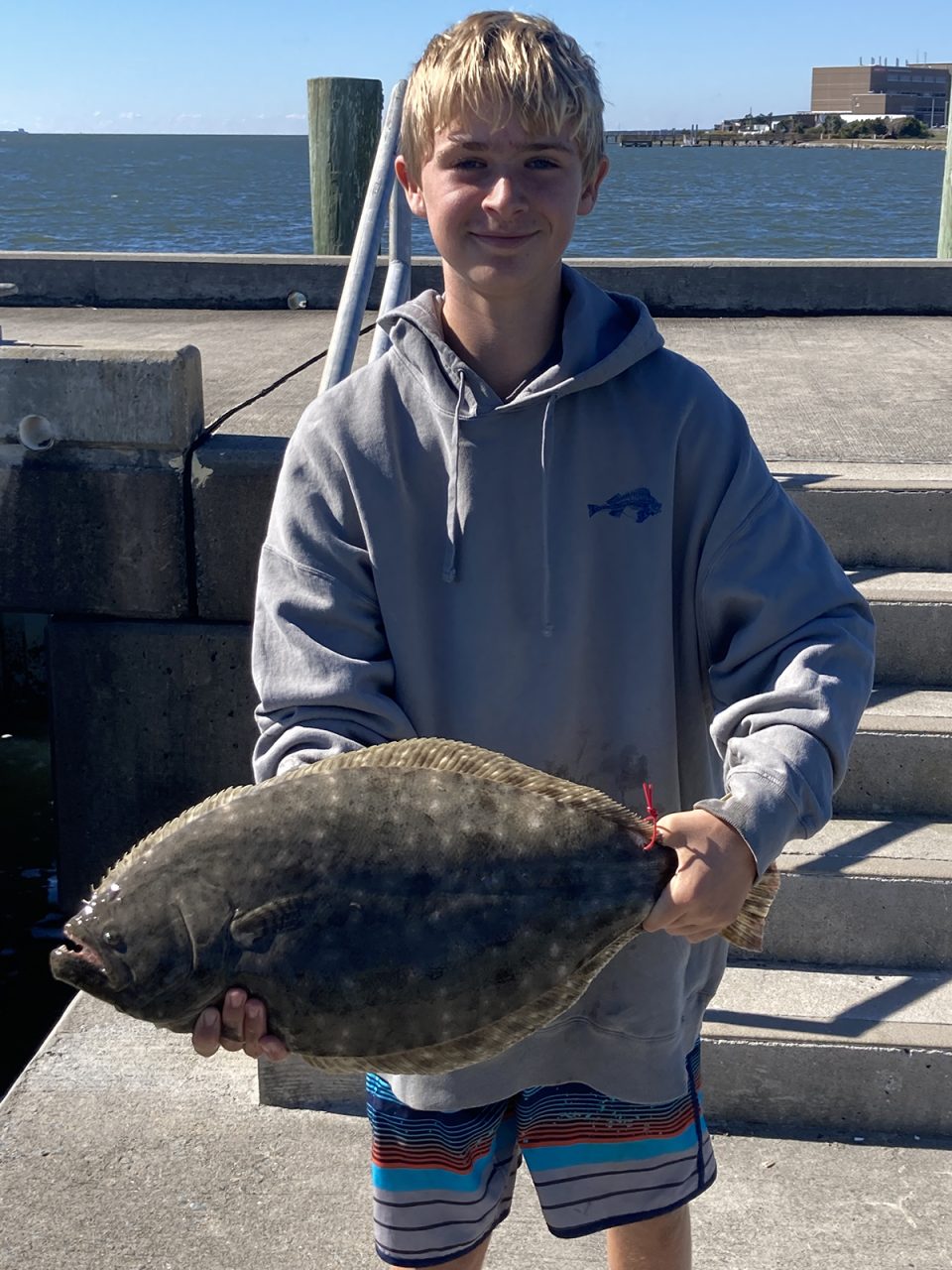
Batsavage now lives in Morehead City with his wife Tina and son Sheldon, who is just a couple of months shy of 14.
“They both enjoy fishing and spending time on the water.”
Apparently, similar to his counterpart Dr. Cooper on the TV show, “Big Bang Theory,” young Sheldon demonstrates genius, but his genius relates mainly to catching big fish.
“Fishing is by far my son’s favorite hobby, and he’s an excellent angler. He’s already caught several southern flounder over 5 pounds and a 41-inch red drum. I learn as much from him as he learns from me,” Sheldon’s father remarked.
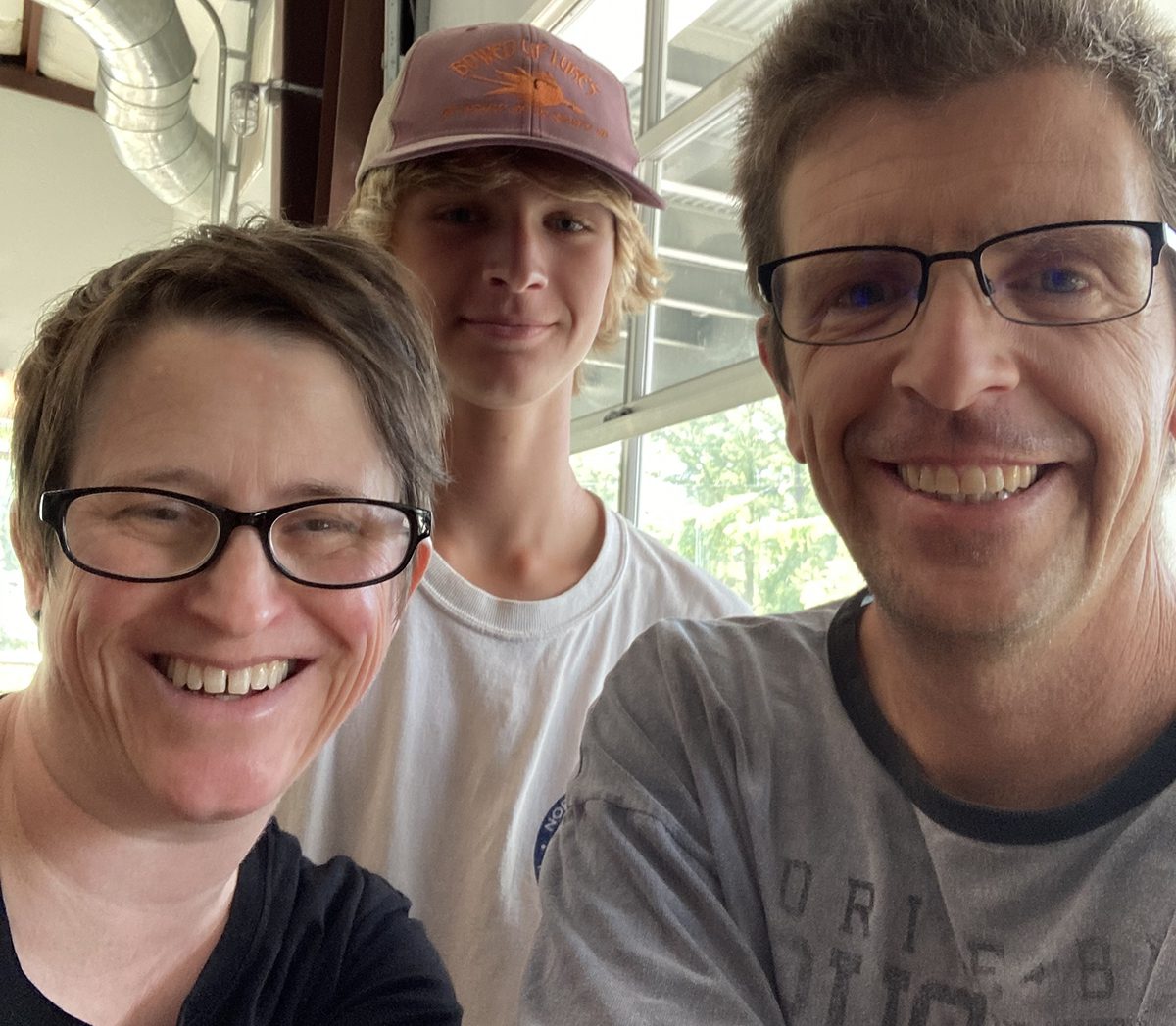
As for dad, he enjoys fishing the shallows.
“I mostly fish in the estuaries and nearshore ocean from boat and shore. I have a 21-foot skiff, which is pretty versatile for fishing these areas,” he said.
And Batsavage pursues any and all fish species that can be caught in coastal North Carolina waters.
“I target a variety of species including speckled trout, flounder, red drum, weakfish, sea mullet, Spanish mackerel, and sheepshead. Striped bass was one of my favorites when I lived on the Outer Banks during the late 1990s and early 2000s. I also try to go shad fishing in the coastal rivers in the late winter and spring,” he said.
And his preference is fishing with lures rather than bait.
“My favorite way to fish is casting — jigs, spoons, plugs, etcetera — to the variety of species found close to my home. The number of species to fish for was limited where I grew up, so I don’t take the variety of available species around here for granted.”
Most likely, as a consequence of his recordkeeping for the division, Batsavage has a specific method of tracking his fishing trips, a database of sorts. A trove of data that would probably help us all.
“I wish I was more consistent with my fishing success, but the key to helping me with fishing is keeping a logbook,” he said. “Recording the times of year, weather, tides, water conditions, fish caught, and gear used from past fishing trips has really helped me learn the patterns for different species over the years.”
His data spans decades.
“I started keeping logbooks in the late 1990s, so it’s also interesting to look back to see how things change annually and over time,” he said, noting there are also other advantages that give him an inside track on the fish. “Another thing that has helped me with fishing is what I’ve learned about fish as a fisheries biologist and manager. Knowing the life history and habitat preferences of fish has made me a better angler.”
It goes the other way too.
“Conversely, recreational fishing for most of my lifetime has helped me as a fisheries biologist and manager by gaining a better understanding of the recreational fishery,” he said.
Batsavage’s logbook helps in myriad ways, but most especially in preparation.
“Having a plan with fallback options before I go fishing has worked well for me, that’s where the logbook is a great asset,” he said.
But initial plans don’t always work out, though they often lead to educational opportunities.
“Time and weather windows are often narrow, so fishing options can be limited. You can’t fish for everything on a single trip,” he said. “Of course, the plans don’t always work out, but if I had fun and learned something, then it was a good trip.”
As for the long term, Batsavage sees himself fishing and having fun with his son Sheldon through the years.
“I hope to be retired and still fishing with my son 20 years from now and to have more time to travel.”



